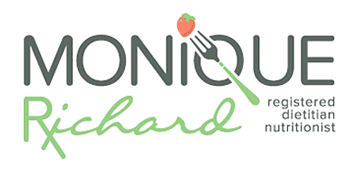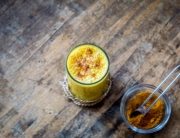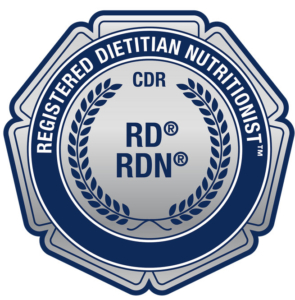
You may think you are being diligent about flu prevention 101. You get the flu vaccine, wash your hands with hot, soapy water often, distance yourself from sick family members and co-workers. You’ve got the basics covered! These are important preventative measures I hope we are all actively doing throughout the year, BUT if you aren’t taking care of your body and strengthening your immune system with nutrition and lifestyle choices in addition to these practices, those tips can only protect you so much.
Our immune system is incredibly complex and highly functioning on its own. During cold and flu season however, it is continuously bombarded with germs and bacteria and can use a little extra help. This is where complimentary habits to improve immune function can be a great way to make sure you are protecting yourself as best as you can!
Here are my top 5 tips to keep you & your immune system happy and healthy:
1) GET YOUR ZZZ’S
- We have all heard it a million times, but sleep really is SO important. Your body conserves energy and restores the immune system as you are sleeping.
- Studies show that people who don’t get quality sleep or enough sleep are more likely to get sick after being exposed to a virus, such as the common cold virus. Lack of sleep can also affect how fast you recover if you do get sick.
- Aim for 7- 9 hours of uninterrupted sleep a night. Stay on the lookout for some sleep hygiene tips and how sleep can affect your diet and nutritional status, weight and overall health more than you may realize.
2) Hydrate, Hydrate, Hydrate!!
- The outdoor air is drier in cold weather, plus our heated homes are dry. Staying hydrated in the winter keeps mucous membranes soft and moist, preventing viruses and bacteria to enter. Fluids also carry nutrients to your cells & flush out bacteria already in your body. Hydration is crucial to staying healthy and maintaining the body’s normal functions all year around, but especially important when sickness is in the air!
- How much water should we be drinking to stay properly hydrated?
- One simple rule of thumb is to divide your weight by two and that’s the minimum number of ounces your body needs. This is a rough estimate and individual needs will vary depending on several factors like activity and health.
- Fluid from fruits, vegetables, broths and other unsweetened beverages can also help your body stay hydrated and nourished with all those amazing antioxidants you need.
3) DAILY MOVEMENT (30 MINUTES OF GENTLE MOVEMENT PER DAY)
- This one is another suggestion that should be done year-round. No matter what activity you do, staying active will help deliver freshly oxygenated blood to your tissues, thereby building up your immune system.
- Moderate exercise, such as brisk walking, for 45 minutes a day, five days a week can reduce risk of a cold by a third. The best results are with long-term, consistent exercise.
4) MAINTAIN A HEALTHY DIET
- Scientists have proven that people who are malnourished (both very low-calorie diets AND very high-calorie diets) are more vulnerable to infectious disease. This is why it’s important to make sure your body is getting good, adequate nutrition with a variety of foods full of vitamins and minerals daily. The best way to do this is by eating a balanced diet of whole grains, lean protein, healthy fats and PLENTY of fruits and vegetables in various colors. Cooking with garlic, plants from the allium family in general (onions, leeks, chives) has antimicrobial and antiviral properties, upping the protective benefits.
- Foods rich in the antioxidants vitamin C and A, such as citrus fruit, cabbage, broccoli, pumpkin, sweet potato, and spinach, have immune-boosting power. Zinc can help fight off and reduce infection, zinc can be found in fish, oysters, unprocessed grains, and cereals.
5) SUPPLEMENT W/ VITAMINS, MINERALS AND TEAS: If you are unable to get enough vitamins and minerals through natural food sources, these supplements may be helpful.
- Vitamin D: Most people are chronically deficient in vitamin D, which can affect our bodies immune response. Vitamin D helps mediate our immune systems and deficiency has been linked to increased susceptibility to infection.
- Zinc: A 2015 analysis of clinical trials found that oral zinc helps to prevent and reduce the length of colds.
- Vitamin C: Taking at least 200 mg of vitamin C per day appears to reduce the duration of cold symptoms by an average of 8% in adults and 14% in children.
- Elderberry: Although an old folk remedy, this fruit is loaded with nutrients called antioxidants, and it may help fight inflammation. In some lab studies, an extract from the berries appears to block flu viruses. More research is needed but elderberry syrup may be a great addition to your cold and flu prevention arsenal. The typical dose is 1-2 teaspoons per day for prevention and 1 teaspoon every 2-3 hours if fighting a virus, safe for children as well.
- Teas: White, green and black teas all deliver disease-fighting polyphenols and flavonoids. These antioxidants seek out cell-damaging free radicals and destroy them. Caffeinated and decaf work equally well.
- Probiotics: Probiotics are good bacteria that restore the gut flora. They allow the immune system to fully recover and combat the pathogens and toxins in systemic circulation. Probiotics also increase the production of immunoglobulins and specialized immune cells (aka even more immune support).
- Probiotics can be taken in supplement form, but there are plenty of food sources of probiotics as well! Greek yogurt, sauerkraut, dark chocolate, and pickles just to name a few.
- Echinacea: Echinacea is a flowering plant that research shows increases the number of white blood cells in the body, which fight infections. It is available in tablets, extract, juice, and tea formats. Be sure you talk to your registered dietitian nutritionist (RDN), physician and pharmacist about drug-nutrient interactions to make sure they do not interact with any prescribed medications or health conditions you may have.
Don’t let the flu or cold get you down this year! Be proactive by adding some of these healthy tips into your daily routine. By incorporating just a few of these simple tips into your day you will not only be equipped to tackle the winter blues, but you’re setting yourself up for an overall healthy, energized life regardless the time of year.
Schedule an appointment with me, your registered dietitian nutritionist today!
REFERENCES:
- Olsen, e. J. (2015, June 09). Can lack of sleep make you sick? Retrieved January 18, 2018, from https://www.mayoclinic.org/diseases-conditions/insomnia/expert-answers/lack-of-sleep/faq-20057757
- 5 Ways Nutrition Can Prevent Cold & Flu (And Treat Them!). (2015, January 19). Retrieved January 26, 2018, from https://www.utmedicalcenter.org/news/370/5-ways-nutrition-can-prevent-cold-flu-and-treat-them/
- Harvard health. (2017, October 31). How to boost your immune system. Retrieved January 18, 2018, from https://www.health.harvard.edu/staying-healthy/how-to-boost-your-immune-system
- Faletra, M. (2017, December 6) An integrative dietitians guide to outsmarting cold and flu season. Retrieved January 18, 2018, from https://www.thewellessentials.com/blog/an-integrative-dietitians-guide-to-outsmarting-cold-and-flu-season
- Getz, l. (2009, January). Winter nutrition – healthy eating offers good protection during the chilly season. Retrieved January 18, 2018, from http://www.todaysdietitian.com/newarchives/011209p48.shtml
- 5 tips: natural products for the flu and colds: what does the science say? (2017, December 01). Retrieved January 18, 2018, from https://nccih.nih.gov/health/tips/flucold.html
- Tips for staying well during cold and flu season. Dietitians of Canada. (2011, November 18). Retrieved January 18, 2018, from http://adultmetabolicdiseasesclinic.ca/resources/preventing-colds-and-flu-and-nutrition.pdf
- Fryhofer, s. A. (2008, September 05). Tips to help prevent colds and flu. Retrieved January 18, 2018, from https://www.webmd.com/a-to-z-guides/features/cold-flu-prevention-tips#1









